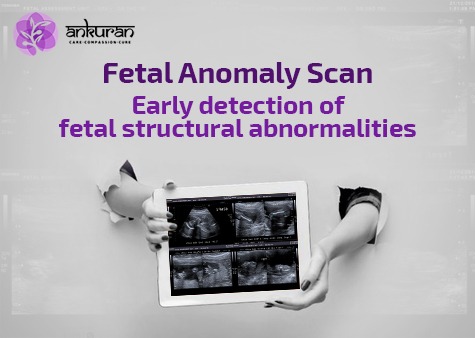A detailed fetal anomaly scan is an essential part of prenatal care. It’s a window into the unseen world of your growing baby. This scan, usually done around the 20th week, can reveal important information about your baby’s health and development.
It’s not just about finding problems, but also about confirming that everything is progressing normally. A normal report can bring immense relief to expectant parents. If any issues are detected, they can be addressed promptly, ensuring the best possible care for your baby. Understanding your scan results can empower you on this exciting journey of parenthood.
What is a Fetal Anomaly Scan?
A detailed fetal anomaly scan is a specialised ultrasound performed during pregnancy. Its purpose is to provide a thorough check of the baby’s development and detect any abnormalities. This scan is typically performed during the twelfth week of gestation, a stage marked by the presence of several significant developmental milestones. The scan can be used to confirm the presence of a fetus, measure its gestational age, and identify any abnormalities that may be present. It can also help to identify any potential risk factors during pregnancy.
The scan examines various aspects of the fetus. It checks the baby’s anatomy in detail, including the brain, face, spine, heart, stomach, kidneys, and limbs. It also measures the baby’s size and evaluates the location of the placenta.
If a 20-week ultrasound detects no abnormalities in the developing baby, the parents will feel a tremendous sense of relief. The scan can also help to identify any potential risks, such as genetic conditions, that may affect the baby’s health. It can also provide valuable information about the health of the mother, such as any underlying medical conditions. By catching problems early, you can give your child the best care possible. Having the knowledge to interpret your scan results is a huge step in becoming a parent.
Can a Fetal Anomaly Scan Detect All Abnormalities?
A fetal anomaly scan is a powerful tool in prenatal care. It can detect many, but not all, abnormalities.
This anomaly scan in pregnancy can identify structural issues like heart defects, spinal abnormalities, and limb malformations. It can also detect conditions like Down syndrome.
However, it’s important to understand its limitations. Some genetic or developmental disorders may not be detected by this scan. Also, some issues may develop later in pregnancy.
The effectiveness of the scan can also be influenced by various factors, such as the baby’s position during the scan and the mother’s body type.
While a detailed fetal anomaly scan provides valuable insights into the baby’s health and development, it is not infallible. It is one of several tools used to ensure a healthy pregnancy.
The Process of a Detailed Fetal Anomaly Scan
During a detailed fetal anomaly scan at 20 weeks, the expectant mother lies down while a sonographer applies a special gel to her abdomen. An ultrasound device is moved over the belly, producing images of the baby on a screen.
The scan is usually painless. The sonographer examines the baby’s body in detail and takes measurements. They might ask the mother to move or adjust her position to get better views of the baby.
A specialist then interpreted the results. A normal fetal anomaly scan results explain that no abnormalities were detected. Further tests may be suggested by the specialist if any issues are detected. During a follow-up appointment, they usually discuss the results with the mother and address any questions or concerns.
Conclusion
A detailed fetal anomaly scan report is an indispensable part of prenatal care. It provides valuable insights into your baby’s health and development. While it has its limitations, the information it provides can be crucial for early intervention if needed.
Always remember, that this scan is a tool for you and your healthcare provider to ensure the best possible care for your baby. Don’t hesitate to discuss any concerns or questions you may have about the scan with your healthcare provider. After all, every parent deserves peace of mind on this beautiful journey of bringing a new life into the world.



No Comments